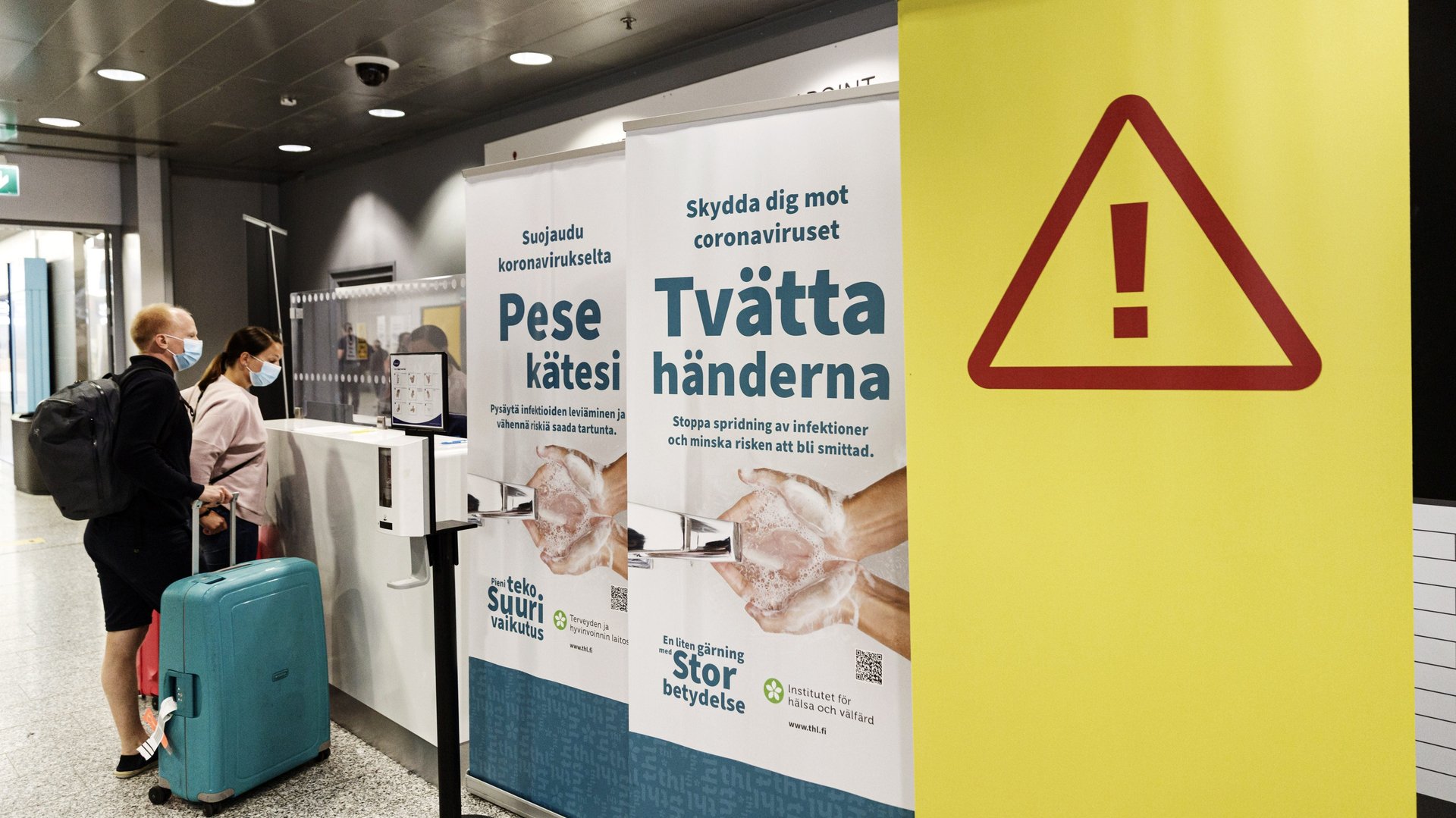How Finland got 20% of its population to download a contact tracing app in one day
Contact tracing apps, which can let people know if they’ve been close to someone who tested positive for Covid-19, are a crucial tool for public health officials to curb outbreaks. But they only work if a lot of people download them. So far, although dozens of apps have been introduced, their adoption has generally been sluggish (except in countries like China and Qatar, which made them mandatory).


Contact tracing apps, which can let people know if they’ve been close to someone who tested positive for Covid-19, are a crucial tool for public health officials to curb outbreaks. But they only work if a lot of people download them. So far, although dozens of apps have been introduced, their adoption has generally been sluggish (except in countries like China and Qatar, which made them mandatory).
That may be starting to change—if certain conditions are met.
This week, the national health agency of Finland released a contact tracing app that was downloaded by more than a million people—one-fifth of the country’s population—in 24 hours. Officials had originally hoped they might reach that level of adoption in a month. That beats a previous voluntary adoption rate record of 10% in a day, set by Ireland in July, although Ireland’s rate has since grown to at least 37%, one of the world’s best.
There are two key factors driving these improved numbers, said Sarah Kreps, a public policy and law professor at Cornell University who has been studying public attitudes toward tracing apps since April.
One is that as the world grows more accustomed to living through a pandemic, people are becoming less likely to view the apps as scary and more likely to view them as essential, she said. Unsurprisingly, that’s especially true of people who have had Covid-19; as the virus spreads, adoption rates for new tracing apps will rise.
Even more importantly, the recent European apps have prioritized individual privacy by keeping data housed in third-party, rather than government, data centers. They also grant users more control over what information the app is able to share, and with whom.
“The thing people value most is the privacy-preserving attributes of the apps, and Finland has run with this view,” Kreps said. “In the first wave [of apps rolled out around the world], people were really drawing on the Asia experience, in which the apps were much more intrusive, had fewer privacy features, and gave central government authorities in access to that data.”
A related factor is peoples’ overall trust of government institutions, which tends to be relatively high in Europe but could remain a hurdle in the US. Rather than a top-down approach, Kreps believes the US will have much more success with a patchwork of apps released by local governments and corporate employers, even though they may have more difficulty sharing data amongst themselves.
Virginia became the first US state to produce its own app last month, although up to now it has reached less than 6% of the population. More states are likely to follow soon; this week Google and Apple, which have collaborated on tracing software, rolled out an upgrade that should make it easier for local officials to introduce tracing apps without having to build them from scratch.
“This not going away anytime soon,” Kreps said. “People are tired of being in quarantine, and realize that the vaccine may not be a panacea. That points to a need for more tools in the toolkit.”